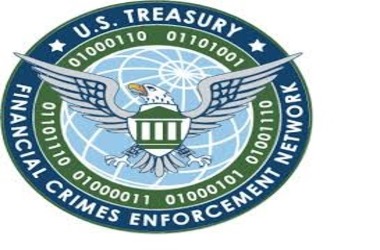 Approximately the last several years, the US has confiscated and sold over 185,000 bitcoins, the worth of which is comparable to the GDP of Bhutan, Seychelles, and the Maldives combined. At the prevailing Bitcoin price of $46,500, the United States has confiscated and sold off bitcoins worth $8.6 billion. Seychelles, Bhutan, and the Maldives have GDPs of around $1.5 billion, $2.5 billion, and $4 billion, respectively.
Approximately the last several years, the US has confiscated and sold over 185,000 bitcoins, the worth of which is comparable to the GDP of Bhutan, Seychelles, and the Maldives combined. At the prevailing Bitcoin price of $46,500, the United States has confiscated and sold off bitcoins worth $8.6 billion. Seychelles, Bhutan, and the Maldives have GDPs of around $1.5 billion, $2.5 billion, and $4 billion, respectively.
“In financial year 2019, we had around $700,000 in crypto confiscations.” It will be $137 million in 2020. And in 2021, the value of Bitcoins seized surged to about $1.2 billion,” the Internal Revenue Service’s (IRS) Jarod Koopman told CNBC in August. Nevertheless, the government auctioned the cryptos at a significant discount to Bitcoin’s current value.
According to an NBC storey, the CIA confiscated $1 billion in Bitcoin in relation with the criminal Silk Road trade in November 2020. Because the matter is still ongoing, the assets are kept in a Bitcoin wallet. However, Bitcoin’s price has almost quadrupled in the year afterwards, reaching an all-time peak of $69,000. It is presently selling at a price of $56,000, an increase from $18,000 in November 2020.
These Bitcoins and other valuables are obtained by the authorities in top ranks via undercover operations. Other valuables include “10 boats, 12 automobiles, and one among the lots is undisclosed quantity of bitcoin being auctioned,” according to Koopman.
For instance, consider the Silk Road marketplace operation, which netted the department thousands of Bitcoin. It was the agency’s largest-ever confiscation, facilitated by the IRS’s use of Chainalysis, a software business, to discover previously unnoticed trades.
Silk Road is a dark web store where users may purchase and sell narcotics in exchange for digital cash. Ever since, the cryptocurrencies have remained in the hands of the government agency on “bureaucratic grounds,” according to an NBC storey from earlier in December.
According to Reuters, the Justice Department was looking for the crypto currencies taken by an unknown hacker from the renowned website in November 2020. Silk Road was raided by the agency in 2013, and its inventor, Ross Ulbricht, was imprisoned in 2015 for facilitating narcotics transactions using Bitcoin. He had received a life term in jail.
The IRS seems to have been performing this for quite some time. It confiscated Bitcoin valued $56 million in November 2021 as portion of a vast plot involving BitConnect, a cryptocurrency investment scam that duped investors from the US and overseas of more than $2 billion. The plan was thought to be the greatest bitcoin criminal fraud ever perpetrated.
The nation has been tracking and seizing cryptocurrencies meant to avoid law enforcement utilizing crime-fighting techniques. The IRS collaborates with certain other federal agencies such as the Federal Bureau of Investigation, Homeland Security, and the Drug Enforcement Administration.
Following the acquisition of these cryptocurrencies by the government, the holdings undergo 3 key transitions.
One is the search and confiscation.
Second, there is liquidation.
Three, use of earnings from cryptocurrency sales.
The government sells off these cryptocurrency after a search and confiscation. Typically, such sales are held by the US Marshals Service. The US General Services Administration has also been participating in auctioning since 2021. According to NBC, the agencies have confiscated and auctioned almost 1.85 lakh bitcoins through nine events since 2014, netting almost $180 million.
These cryptocurrencies would be worth roughly $8 billion based on current prices — more than 56 times the sales proceeds seven years back.
It had confiscated 29,657 bitcoins during the first Silk Road-linked seizure. This sum might have netted the agency $18 million. If the cryptocurrencies were auctioned now, they would have garnered more than $1.6 billion.
It auctioned 500 Bitcoin for $5 million four years back. It might now be valued $23 million. It auctioned off 30,000 Bitcoin for $19 million seven years back. That sum is now valued at $1.3 billion. The money from the auctions in the BitConnect Ponzi scheme case will be utilized to pay the affected.
After the bitcoins are sold off for US dollars, the earnings are transferred to the Treasury Forfeiture Fund or the Department of Justice Forfeiture Fund. Typically, the decision is made by the investigating agency. The funds are then utilized to support other activities.








